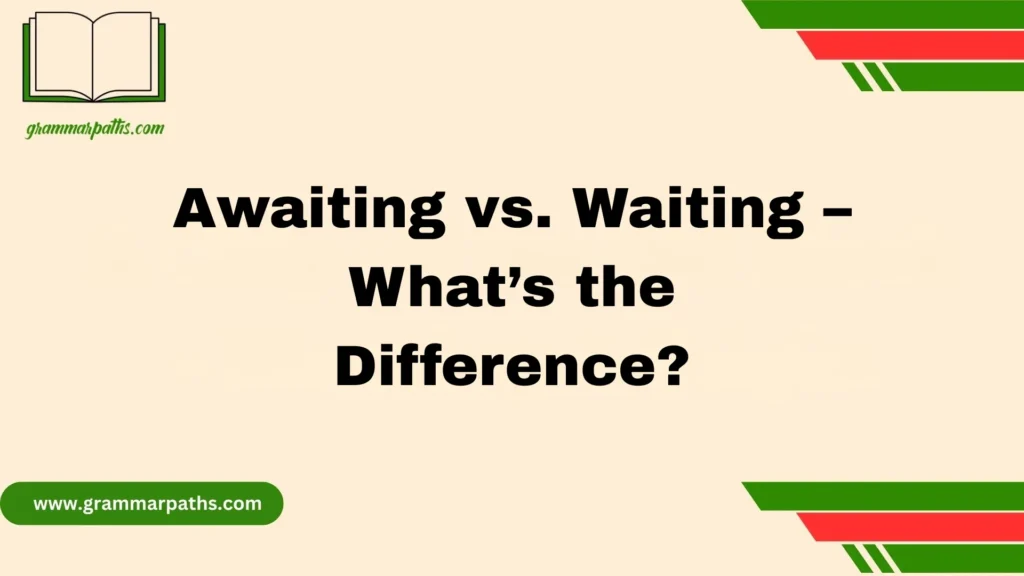When you find yourself pushing hard to close a gap in your work or life, you’re essentially playing catch up. It feels like being one step behind, trying to fix a long to-do list or handle tasks that keep piling up. I’ve been there—racing against time, reshaping my business strategy, and tackling challenges during a tough game or busy day. This phrase is often used in everyday moments, capturing the pressure and the quiet lessons we learn about resilience and managing unexpected setbacks. Sometimes, it’s about more than just catching up; it’s about understanding the weight of the situation and finding smarter ways to move forward without getting overwhelmed.
In American English, playing catch up resonates deeply because many of us face an endless loop of trying to stay ready, calm, and focused. We all want to avoid the stress of always chasing after time or opportunities. By learning to handle this smartly—exploring smarter ways to organize, balancing priorities, and staying steady—we can break that loop. For me, reminding myself to stay calm, keep finding balance, and explore new strategies has been key. It’s a mix of accepting that some days you’ll be behind but knowing how to keep pushing and growing through every pressure, every surprise, and every moment life throws your way.
What Does “Playing Catch Up” Mean?
At its simplest, playing catch up means you’re behind and need to catch up with others. Imagine you’re running a race, but you started late or slowed down. Now you’re trying to run faster to reach the leaders. That’s the idea behind the phrase.
People use it in two ways:
- Literal meaning: Like kids playing catch with a ball, where one throws and the other tries to catch it.
- Figurative meaning: When someone tries to close a gap in progress, knowledge, or achievement.
Most of the time, people use playing catch up figuratively. For example, if a student missed classes and now studies extra hard to catch up with classmates, they are playing catch up.
The Origin of “Playing Catch Up”
The phrase comes from the simple game of catch—throwing and catching a ball. It evolved over time to describe any situation where someone is trying to close a gap or make up for lost ground.
The earliest uses trace back to the early 20th century, when sports and games became popular metaphors in everyday language. The idea of “catching up” someone else’s lead is easy to picture, which helped the phrase spread quickly.
How “Playing Catch Up” Fits into American English
In American English, playing catch up is a common, everyday phrase. People of all ages use it casually and professionally. It appears in conversations, news articles, business reports, and even school talks.
Depending on context, it might sound formal or informal. For example:
- Informal: “I’m playing catch up on my emails.”
- Formal: “The company is playing catch up in the technology market.”
The phrase resonates well culturally because many Americans relate to the feeling of needing to catch up, whether at work, school, or sports.
Literal vs Figurative Use: Understanding Both Sides
While playing catch up can literally mean catching a ball, most use it figuratively. Here are some examples:
- Literal:
“The children were playing catch up in the park.”
This means kids were literally playing catch. - Figurative:
“After missing two weeks, I’m playing catch up on my assignments.”
This means the person is trying to complete work they missed.
Understanding the difference helps avoid confusion and allows you to use the phrase correctly.
Playing Catch Up in Competitive Contexts
The phrase shows up a lot in competitive settings:
- Sports: Teams often talk about playing catch up when they’re behind in the score. For example, “Our team is playing catch up after halftime.”
- Business: Companies might play catch up to match competitors in technology, sales, or market share. For instance, “The startup is playing catch up with industry giants.”
- Education and Personal Growth: Students or professionals might say they’re playing catch up on skills or knowledge after falling behind.
Business Strategies Related to Playing Catch Up
In business, playing catch up can be a challenge. Falling behind competitors can hurt profits and reputation. But many companies have succeeded by turning things around quickly.
Here are some common strategies companies use:
- Innovation: Investing in new technology to leapfrog competitors.
- Hiring experts: Bringing in skilled people to close gaps fast.
- Partnerships: Collaborating with others to catch up quickly.
For example, Netflix started as a DVD-by-mail service but played catch up in streaming video to compete with giants like Amazon and Hulu. By innovating and focusing on customer experience, Netflix became a market leader.
Playing Catch Up in Everyday Conversation
People use playing catch up casually all the time:
- At work: “I’m playing catch up after vacation.”
- At school: “I need to play catch up on my reading.”
- Social life: “I’m playing catch up with friends I haven’t seen in months.”
Be careful not to overuse the phrase, or it might sound repetitive. Also, don’t confuse it with similar phrases like “catching up,” which means getting updated or reconnecting socially.
Real-Life Examples & Sentences Featuring “Playing Catch Up”
Here’s a handy table with examples from different contexts:
| Context | Example Sentence | Meaning |
| Sports | “Our team is playing catch up after halftime.” | Trying to overcome a score deficit |
| Business | “The company is playing catch up with its rivals.” | Trying to match competitors’ progress |
| Daily Life | “I’m playing catch up on emails after my trip.” | Trying to finish delayed tasks |
Common Mistakes and How to Avoid Them
To use playing catch up well, watch out for these common errors:
- Mixing it with catching up: “Catching up” usually means reconnecting socially.
- Using incorrect tense: “I will playing catch up” is wrong; say “I will play catch up.”
- Overusing in one conversation, which sounds unnatural.
Conclusion
Playing catch up is a common experience that everyone faces at some point. It means trying to close a gap or get back on track when you feel behind in work, life, or goals. The key is to recognize the pressure it brings but also to learn from it by staying calm, being ready, and finding smarter ways to handle tasks. Instead of letting the stress take over, use it as an opportunity to build resilience and grow stronger. With practice, playing catch up becomes less about struggle and more about progress.
FAQs
Q1: What does “playing catch up” mean?
It means trying to get back on track after falling behind, whether in work, studies, or daily tasks.
Q2: Is playing catch up always stressful?
Not always. While it can be stressful, it also teaches important lessons about managing time and building resilience.
Q3: How can I avoid constantly playing catch up?
Plan ahead, stay organized, tackle tasks early, and learn smarter ways to manage your routine.
Q4: Can playing catch up be positive?
Yes! It shows you’re motivated to improve and adapt, which helps personal and professional growth.
Q5: Is playing catch up common in American English?
Yes, it’s a widely used phrase that reflects the fast-paced lifestyle and constant need to stay on top of things.

Grace Marie is the dedicated writer behind GrammarPaths.com, where she shares her passion for English grammar, idioms, and writing mastery. With a strong background in language studies and years of experience helping learners improve their communication skills, Grace creates clear, practical, and engaging content that makes English easy to understand.










